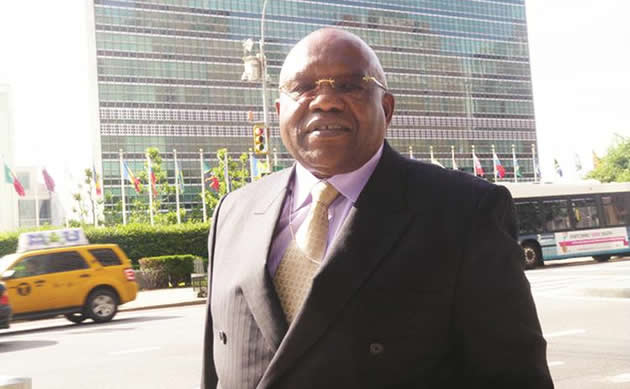Sithole takes a dig at sports administrators

FORMER Zimbabwe Olympic Committee president Tommy Sithole has taken a swipe at sports administrators who use their personal resources to fund associations they lead but end up holding the sport to ransom.
Presenting a paper on the topic, “Maximising Return on Sport Sponsorship Investment,” in Harare during a breakfast meeting, Sithole, who is a former International Olympic Committee director for Co-operation and Development, said sports associations needed to convince corporates to invest in them.
Sithole, an internationally acclaimed sports administrator, said corporates are comfortable putting their investments into associations that are well managed and have sound governance.
“You end up with a problem that people say I’ve been putting my money into the sports organisation . . . that’s bad administration. We’re talking about the 1960s. Even in the Olympic Movement from 1884 to 1890, members of the IOC were putting their money there and when they needed to travel, they paid their own airfares or train fares or ship fares.
“Up to 1980 things changed. In 1984, things changed and the host countries for the Olympics realised that in order to maintain this independence, this autonomy, we got to raise money to put into sport and sport perpetuates itself.
“And once you’ve someone going back to the 1960s where they say this organisation is sustained by my own money and therefore I can’t be held responsible for its poor administration; I can’t go because I’ve my money in this, it’s wrong,” said Sithole.
While Sithole did not mention any cases, Zimbabwe Football Association president Cuthbert Dube is on record that he has been using his own personal funds to run the association.
At the moment several creditors are seeking to recover their debts from Zifa while stakeholders are not happy after the Warriors were suspended from the Fifa 2018 World Cup qualifiers after the football motherbody failed to settle what it owes former national team coach Valinhos.
“If you go through the Olympic sport, through international sports organisations, there’s something that each and every one of them has been emphasising over the years and that’s transparency and good governance.
“We’ve just drafted, and it’s accepted what’s called the Agenda 2020 of the International Olympic Movement. The basis is good governance, the basis is transparency,” said Sithole.
A former basketball administrator and player, Sithole challenged the leadership of sports associations who fail to deliver their mandate to resign from their posts and allow people with fresh ideas to take over.
“You can make promises and if you fail halfway through you just go. Zimbabwe has got so many sports organisations and so many people who can take up positions. But for any sport organisation, for any sports leader to hold this nation to ransom . . . Jesus, we’ve to be respectable, we’ve to decide, we’ve to sign that this nation comes first, that sportsmanship comes first. We can’t be holding the country to ransom and really sleep soundly at night,” he said.
Sithole said good governance is key to unlocking investment in sport.
“Last year, the United Nations, of all organisations, adopted a resolution that recognises the uniqueness of sport but it says in accepting that sport was unique, in accepting that sport was autonomous and that it should be autonomous, the autonomy must be responsible.
“There must be responsible autonomy, so sports organisations must adhere to good governance, they must respect people, they must respect the sport that they’re running.
“And when it’s time to go because we can’t fulfill our obligations to sport, we just go because these are voluntary activities,” he said.
Speaking on the sidelines of the presentation that was also attended by the representatives from Zifa, the Sports Commission, Caps United, Premier Soccer League, Zimbabwe Volleyball Association, the Hockey Association of Zimbabwe and the National Bodybuilding and Fitness Federation, Sithole said there was a need to educate sports associations and potential investors.
“There’s money out there, it might not be enough but we must convince the sponsors, have respect for the country as well as the sport.
“I’ve no respect for a person who puts money and uses his own resources to run a sporting organisation.” — Sportszone











Comments